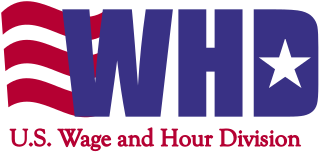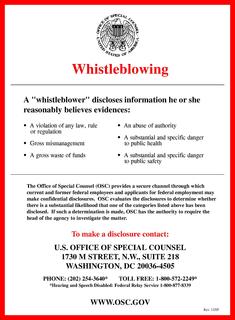
The Labor Management Relations Act of 1947, better known as the Taft–Hartley Act, is a United States federal law that restricts the activities and power of labor unions. It was enacted by the 80th United States Congress over the veto of President Harry S. Truman, becoming law on June 23, 1947.

Workers' compensation is a form of insurance providing wage replacement and medical benefits to employees injured in the course of employment in exchange for mandatory relinquishment of the employee's right to sue their employer for the tort of negligence. The trade-off between assured, limited coverage and lack of recourse outside the worker compensation system is known as "the compensation bargain". One of the problems that the compensation bargain solved is the problem of employers becoming insolvent as a result of high damage awards. The system of collective liability was created to prevent that, and thus to ensure security of compensation to the workers. Individual immunity is the necessary corollary to collective liability.
Overtime is the amount of time someone works beyond normal working hours. The term is also used for the pay received for this time. Normal hours may be determined in several ways:

The Equal Pay Act of 1963 is a United States labor law amending the Fair Labor Standards Act, aimed at abolishing wage disparity based on sex. It was signed into law on June 10, 1963, by John F. Kennedy as part of his New Frontier Program. In passing the bill, Congress stated that sex discrimination:

The Civil Rights Act of 1991 is a United States labor law, passed in response to United States Supreme Court decisions that limited the rights of employees who had sued their employers for discrimination. The Act represented the first effort since the passage of the Civil Rights Act of 1964 to modify some of the basic procedural and substantive rights provided by federal law in employment discrimination cases. It provided the right to trial by jury on discrimination claims and introduced the possibility of emotional distress damages and limited the amount that a jury could award. It added provisions to Title VII of the Civil Rights Act of 1964 protections expanding the rights of women to sue and collect compensatory and punitive damages for sexual discrimination or harassment.
United States v. Darby Lumber Co., 312 U.S. 100 (1941), was a case in which the United States Supreme Court upheld the Fair Labor Standards Act of 1938, holding that the U.S. Congress had the power under the Commerce Clause to regulate employment conditions. The unanimous decision of the Court in this case overturned Hammer v. Dagenhart, 247 U.S. 251 (1918), limited the application of Carter v. Carter Coal Company, 298 U.S. 238 (1936), and confirmed the underlying legality of minimum wages held in West Coast Hotel Co. v. Parrish, 300 U.S. 379 (1937).
The legal principle of vicarious liability applies to hold one person liable for the actions of another when engaged in some form of joint or collective activity.
The Employee Free Choice Act is the name for several legislative bills on US labor law which have been proposed and sometimes introduced into one or both chambers of the U.S. Congress.
Anderson v. Mt. Clemens Pottery Co., 328 U.S. 680 (1946), is a decision by the United States Supreme Court which held that preliminary work activities, where controlled by the employer and performed entirely for the employer's benefit, are properly included as working time under Fair Labor Standards Act. The decision is known as the "portal to portal case."

The Congressional Accountability Act of 1995 (CAA) applied workplace protection laws to approximately 30,000 employees of the Legislative Branch nationwide and established the Office of Compliance to administer and ensure the integrity of the Act through its programs of dispute resolution, education, and enforcement. The OOC educates members of Congress, employing offices and employees, and the visiting public on their rights and responsibilities under workplace and accessibility laws. The OOC also advises Congress on needed changes and amendments to the CAA; and the OOC's General Counsel has independent investigatory and enforcement authority for certain violations of the CAA.
Garcia v. San Antonio Metropolitan Transit Authority, 469 U.S. 528 (1985), is a United States Supreme Court decision in which the Court held that the Congress has the power under the Commerce Clause of the Constitution to extend the Fair Labor Standards Act, which requires that employers provide minimum wage and overtime pay to their employees, to state and local governments. In this case, the Court overruled its previous decision in National League of Cities v. Usery, in which the Court had held that regulation of the activities of state and local governments "in areas of traditional governmental functions" would violate the Tenth Amendment to the United States Constitution.
Employment practices liability is an area of United States labor law that deals with wrongful termination, sexual harassment, discrimination, invasion of privacy, false imprisonment, breach of contract, emotional distress, and wage and hour law violations. It may be categorized as a form of professional liability. Employment practices liability insurance (EPL) is sold as a type of management liability insurance, which is related to professional liability insurance.

The Wage and Hour Division (WHD) of the United States Department of Labor is the federal office responsible for enforcing federal labor laws. The Division was formed with the enactment of the Fair Labor Standards Act of 1938. The Wage and Hour mission is to promote and achieve compliance with labor standards to protect and enhance the welfare of the Nation's workforce. WHD protects over 144 million workers in more than 9.8 million establishments throughout the United States and its territories. The Wage and Hour Division enforces over 13 laws, most notably the Fair Labor Standards Act and the Family Medical Leave Act. In FY18, WHD recovered $304,000,000 in back wages for over 240,000 workers.
IBP, Inc. v. Alvarez, 546 U.S. 21 (2005), is a US labor law case of the a United States Supreme Court, interpreting the Federal Labor Standards Act (FLSA) of 1938, as amended by the Portal-to-Portal Act of 1947.

The Paycheck Fairness Act is a proposed United States labor law that would add procedural protections to the Equal Pay Act of 1963 and the Fair Labor Standards Act as part of an effort to address the gender pay gap in the United States. A Census Bureau report published in 2008 stated that women's median annual earnings were 77.5% of men's earnings. However, newer studies suggest that when the data is controlled for certain variables, the residual gap is around 5-7%; the same study concludes that the residual is because "hours of work in many occupations are worth more when given at particular moments and when the hours are more continuous. That is, in many occupations earnings have a nonlinear relationship with respect to hours."

A whistleblower is a person who exposes any kind of information or activity that is deemed illegal, unethical, or not correct within an organization that is either private or public. The Whistleblower Protection Act was made into federal law in the United States in 1989.
Wage theft is the denial of wages or employee benefits rightfully owed an employee. It can be conducted by employers in various ways, among them failing to pay overtime; violating minimum-wage laws; the misclassification of employees as independent contractors, illegal deductions in pay; forcing employees to work "off the clock", or simply not paying an employee at all.
In law, wrongful dismissal, also called wrongful termination or wrongful discharge, is a situation in which an employee's contract of employment has been terminated by the employer, where the termination breaches one or more terms of the contract of employment, or a statute provision or rule in employment law. Laws governing wrongful dismissal vary according to the terms of the employment contract, as well as under the laws and public policies of the jurisdiction.




